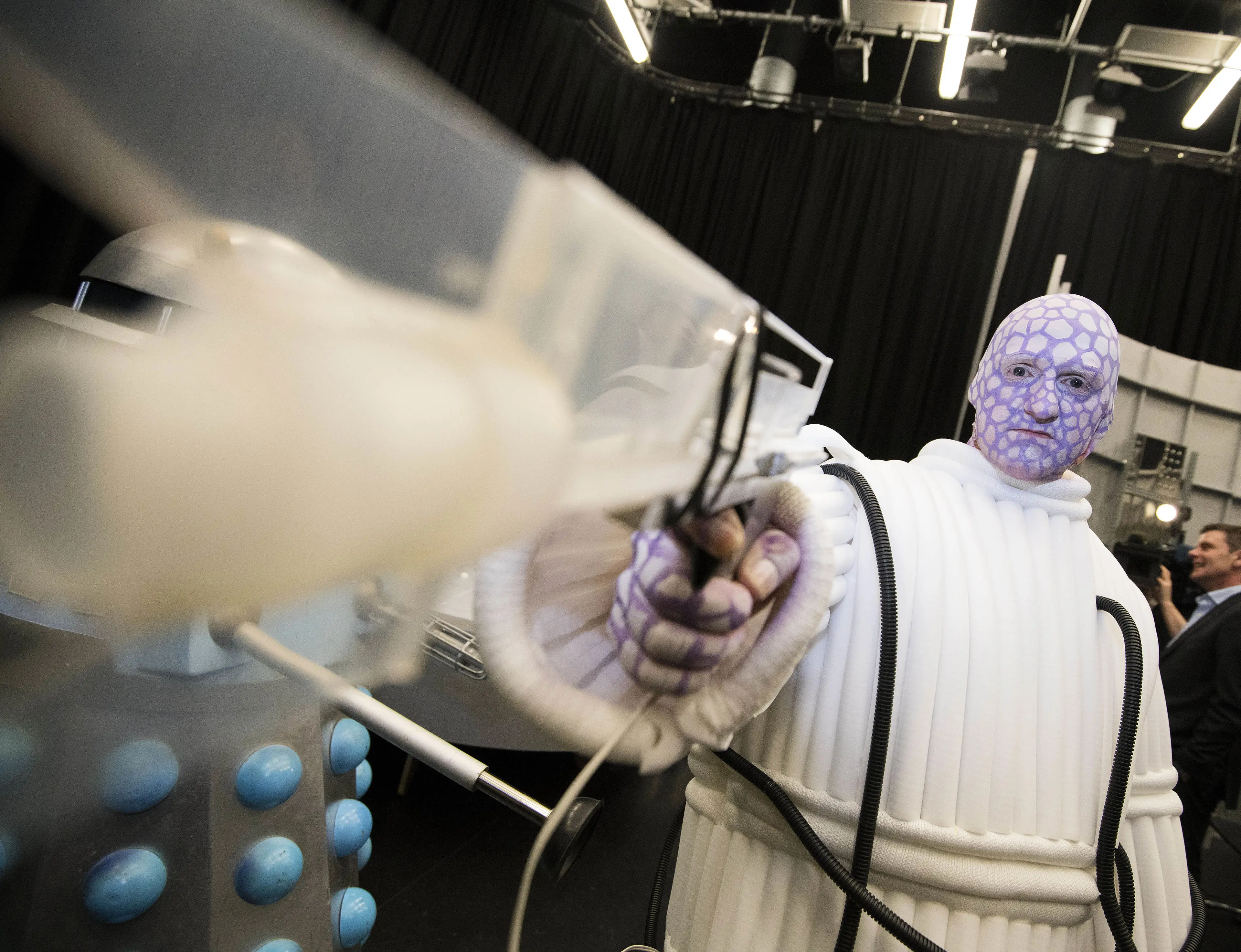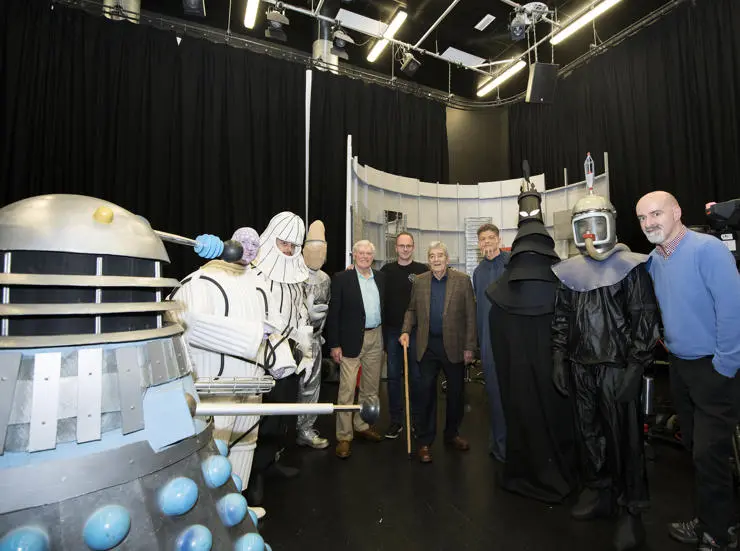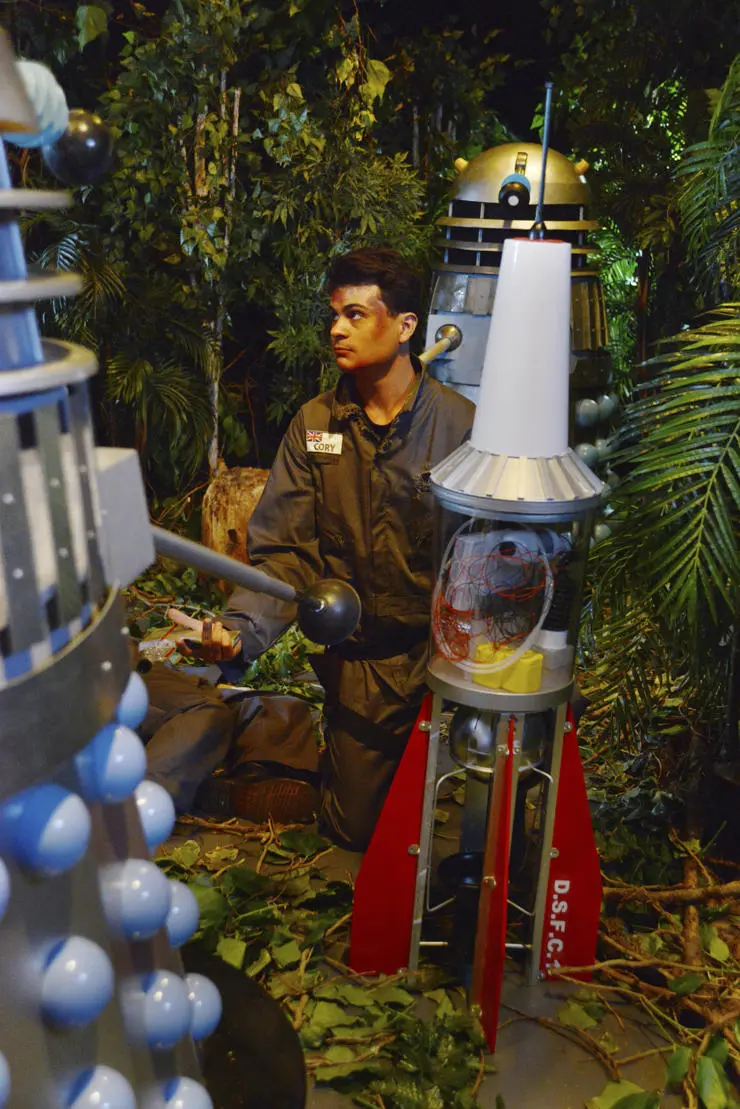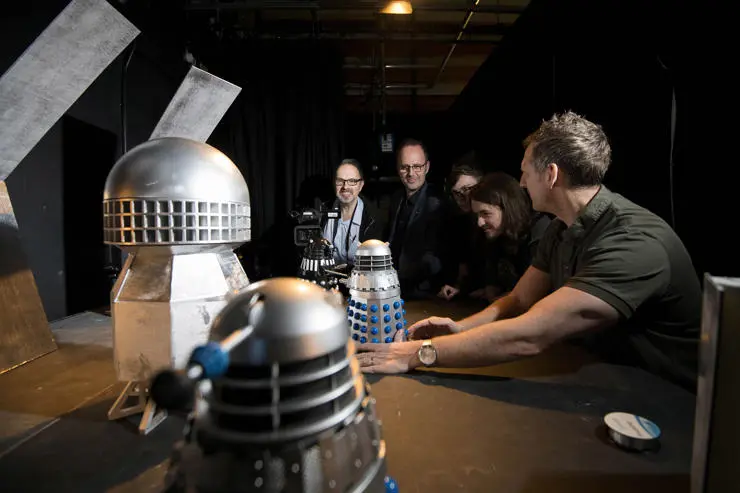The remake of the lost 1965 show won a coveted award at the prestigious Learning on Screen Awards 2020
An innovative project which saw University of Central Lancashire (UCLan) students, graduates and staff authentically recreate a missing episode of Doctor Who has received a special prize in recognition of the achievement.
Judges for the annual Learning on Screen Awards 2020 selected the remade Doctor Who: Mission to the Unknown episode as the winner of the Special Jury Prize, which is presented to entries which stand out in terms of content, production and technical ability.
The 25-minute episode was rehearsed and filmed by a University-wide team over just five days as part of a cross-Faculty project entitled ‘Sci-fi in a Week’. The UCLan team built four sets inside UCLan’s Media Factory and created all the props and costumes. Acting students and graduates took on the roles of various sci-fi characters while media technology students were involved with lighting, camera, sound and editing.
The Special Jury Prize judging panel said: “We have awarded this special prize to a highly ambitious project which brought together students, staff, graduates, other collaborators across faculties and professional services. They brought a mythical piece of television back to life.”
"Winning the Special Jury Prize is wonderful recognition for everybody involved as they put so much energy, professionalism and talent into this project in such a short amount of time – replicating and learning from the production challenges inherent in 1960s television practice"
— UCLan Pro Vice-Chancellor (Students and Teaching) Professor Andrew Ireland
UCLan Pro Vice-Chancellor (Students and Teaching) Professor Andrew Ireland directed and produced the episode after being given special permission from the BBC and the Terry Nation Estate, which holds the rights to the monsters that appear in the story, the dreaded Daleks.
Professor Ireland said: “Winning the Special Jury Prize is wonderful recognition for everybody involved as they put so much energy, professionalism and talent into this project in such a short amount of time – replicating and learning from the production challenges inherent in 1960s television practice. I’m a Doctor Who fan myself and I know the reaction to the episode was really positive among fans but to also receive this award and acknowledgement is fantastic.
“We kept it as close to the original as we possibly could, so everything from the props and costumes to the acting style, pace and camera techniques were designed to be very 1960s. It was filmed to simulate the low-resolution, black and white look of the era and we were able to use the audio from the original recording to inform stage directions, timings, and the mood of the piece.”
Nicholas Briggs, who has been the voice of the Daleks on Doctor Who since the series returned in 2005, lent his support to the project by voicing the Daleks for the special UCLan episode while Peter Purves, who played the Doctor’s companion in 1965, and original cast-member Edward de Souza visited the set and took part in a Q and A with those involved.
BBC Studios was so impressed with the final episode that it premiered the show on the Doctor Who YouTube channel in October 2019 to mark the anniversary of the original broadcast of the episode, which was first aired on BBC One in 1965.
It has now been viewed more than 200,000 times. The Guardian online awarded the endeavour three stars. It featured in the Sunday Times Culture Magazine and was covered extensively by Doctor Who Magazine.
The Learning on Screen Awards 2020 were hosted by the British Universities and Colleges Film and Video Council.
23 March 2021




